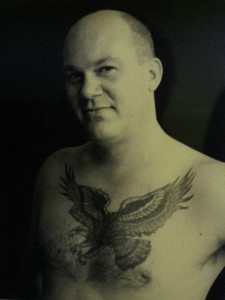Follow Scott
Recent Tweets
- Waiting for Twitter... Once Twitter is ready they will display my Tweets again.
Latest Photos
Search
Tags
anniversary Balticon birthdays Bryan Voltaggio Capclave comics Cons context-free comic book panel conventions DC Comics dreams Eating the Fantastic food garden horror Irene Vartanoff Len Wein Man v. Food Marie Severin Marvel Comics My Father my writing Nebula Awards Next restaurant obituaries old magazines Paris Review Readercon rejection slips San Diego Comic-Con Scarecrow science fiction Science Fiction Age Sharon Moody Stan Lee Stoker Awards StokerCon Superman ukulele Video Why Not Say What Happened Worldcon World Fantasy Convention World Horror Convention zombies
©2025 Scott Edelman
Unearthing my 1984 interview with Thomas M. Disch
Posted by: Scott
Tags:
Harlan Ellison, Isaac Asimov, John Crowley, Last Wave, Orson Scott Card, Ray Bradbury, Ron Goulart, Samuel R. Delany, science fiction, Thomas M. Disch, Vladimir Nabokov
Posted date:
March 1, 2015 |
1 Comment
More than 30 years ago, I conducted a lengthy interview with Tom Disch. How lengthy? Once transcribed, it came to nearly 18,500 words, and took up 48 pages of the Winter 1986 of Last Wave. I’ve been thinking of that interview ever since my recent share of an equally intensive interview with Chip Delany, and decided the conversation was worth reviving here. Tom, who was one of my instructors at Clarion in 1979, deserves to be remembered.
John Clute wrote this about Tom in the Science Fiction Encyclopedia:
Because of his intellectual audacity, the chillingly distanced mannerism of his narrative art, the austerity of the pleasures he affords, and the fine cruelty of his wit, Disch was perhaps the most respected, least trusted, most envied and least read of all modern sf writers of the first rank.
I’ve always been in awe of that description. Read on to see whether you agree it was deserved.
But before you begin, I feel a couple of trigger warnings are in order:
First—as part of a discussion of how Tom’s homosexuality might have affected his writing, I raised the issue of sex change operations in the context of how certain editors were biased against life choices choices they couldn’t understand. I cringed just now reading how I framed that question, because in the intervening three decades since I asked it, I’ve come to believe that’s a lousy term to describe what’s actually happening under those circumstances, which is the bringing about an alignment of one’s inner and outer selves. I’d never ask that question in the same way today—because I now think of the process as being not a change but a gender confirmation—and I’m sorry I raised the topic that way then. But in the interests of historical accuracy and not ducking responsibility, I’m leaving in the question as it was asked in 1984.
And as an addendum to that—if I’m putting my foot even more firmly into my mouth with the way I’m phrasing this trigger warning and apology, please feel free call me out on that, OK? My friends already know (I hope) that they’re free to do that, but I’d like the rest of you to know it, too.
As for second trigger warning—Tom makes a joking reference to John Norman novels and rape which I worry could be triggering for some. If you want to skip that completely, jump over the answer he gives to the question I raise about his review of a Ron Goulart novel.
Now that I’ve taken care of that—hoping that my attempts haven’t made things worse—here’s the entirely of the interview, as it appeared in the final issue of Last Wave.
Thomas M. Disch is one of the more talented and controversial figures in the science fiction field. His body of work encompasses short stories, novels, poems, opera libretti, essays, book reviews, and now even an interactive novel. In every instance he has chosen to work at a level of ambition of which only a handful of other genre writers share in the attempt. He has created works of a remarkably high quality, and at the same time enraged many for his failure to fall into the lockstep of genre requirements. The following interview took place on August 11, 1984 in Tom Disch’s Manhattan apartment.
Last Wave: I think of you as being a joyful writer, as opposed to being the depressing writer which many other people seem to paint you. In your early novel The Genocides, for instance, which is one often given as an example of a depressing work because the benign, indifferent aliens win, I find triumphal joy, for the protagonists in it do triumph with dignity against great odds over the human evil around them. In your recent On Wings of Song, which I’ve read one reviewer claim to be a cynical book, I see a happy ending: David Weinreb does get free and fly. For some reason many people prefer to see him as dying. In rereading these two works and all else inbetween, I just don’t see the cynicism which the overwhelming majority of readers chooses to focus on. Why do you think there is this myth of your work being such a downer? (more…)

